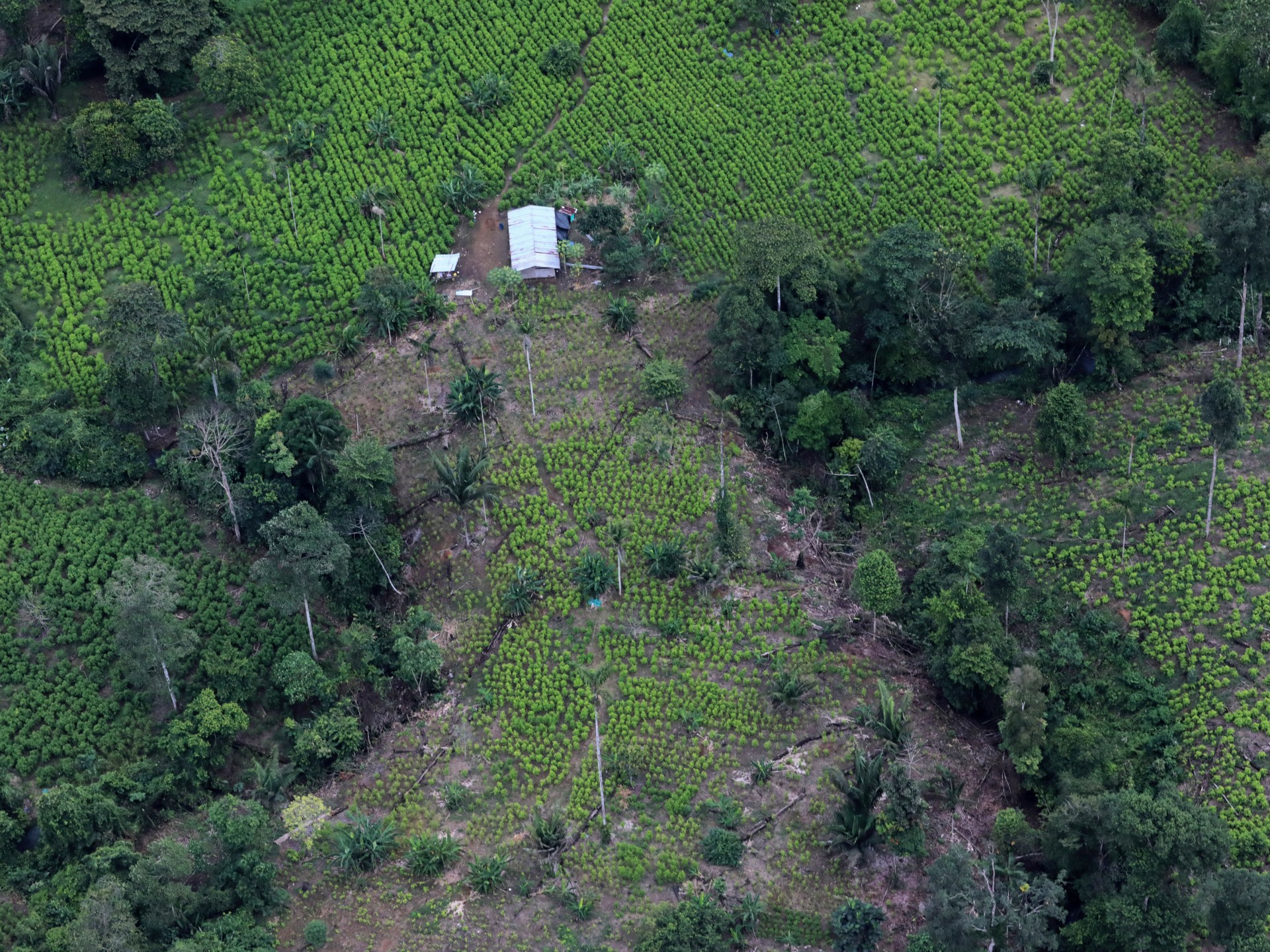UN findings come a day after Colombian President Gustavo Petro called for a new approach to combat drug trafficking.
Colombia has set a new record for the cultivation of the coca leaf, which is used to manufacture cocaine, a United Nations report has found.
The UN Office on Drugs and Crime (UNODC) said on Monday that 230,000 hectares (568,340 acres) of land were planted with coca last year across the South American nation – a 13 percent increase from 2021.
Potential cocaine output also rose 24 percent to about 1.73 million kilogrammes (1,738 tonnes), the office found.
These were the highest numbers since the UN began monitoring in 2001.
“It is worrying that each year there is an increase in coca crops in the country,” UNODC’s regional director, Candice Welsch, said during a presentation of the report.
Colombia has long been the world’s biggest producer of cocaine, a highly addictive drug that is illegal in most countries, and it has faced pressure, notably from the United States, to crack down on production.
But government efforts to get farmers to move away from illegal coca crops have faced a series of challenges, including a lack of promised subsidies and other incentives. Many poor Colombians involved in coca farming say they have no other choice.
Colombian President Gustavo Petro, who has called the war on drugs “irrational”, has proposed regulating narcotics, expanding voluntary crop substitution programmes, focusing enforcement on drug gang leadership and increasing social funding in production areas.
Most recently, on Saturday, Petro called for an alliance between Latin American countries to bring a unified voice to the fight against drug trafficking.
He proposed recognising drug consumption as a public health problem instead of confronting it with what he called a “failed” militarised approach.
“What I propose is to have a different and unified voice that defends our society, our future and our history and stops repeating a failed discourse,” Petro said in a speech to close the Latin American and Caribbean Conference on Drugs, held in the Colombian city of Cali.
“It is time to rebuild hope and not repeat the bloody and ferocious wars, the ill-named ‘war on drugs’, viewing drugs as a military problem and not as a health problem for society.”
According to Monday’s UN report, nearly two-thirds of Colombia’s coca crops are grown in the southern departments of Narino and Putumayo, bordering Ecuador – itself battling a scourge of drug gang-related violence – and in North Santander on the border with Venezuela.
Around half of Colombia’s drug crops are found in Indigenous reserves, forest reserves and natural parks, according to the report.
Much of the sector is controlled by armed groups, including those led by left-wing fighters, right-wing paramilitaries or drug cartels.
The Colombian government has said it is set to adopt a new drug policy soon aimed at dismantling criminal organisations with the least possible harm to poor, rural producers.
Sumber: www.aljazeera.com
 Skip to content
Skip to content

